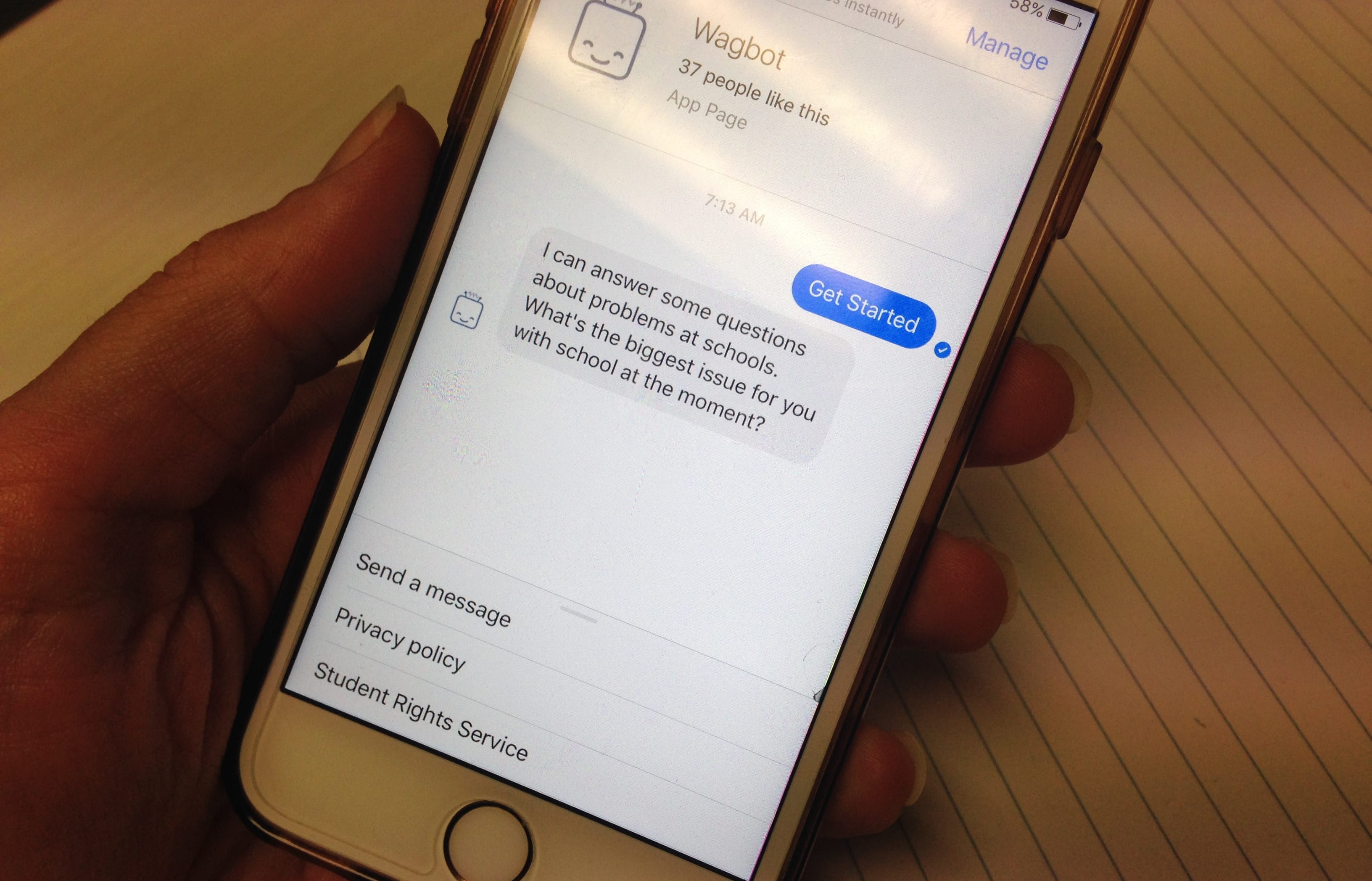Children can get legal information about their rights at school at their fingertips, after a community law service developed a mobile chatbot.

Wagbot is currently being used by 10 to 20 students each day. Photo: RNZ / Kate Newton
Wagbot is a chatbot that uses the Facebook Messenger system to respond to students' questions about common problems such as detentions and suspensions.
Community Law Wellington general manager Geoffrey Roberts said students and parents needed quick access to legal information because it was hard to appeal once schools had decided on a punishment.
"There are very limited powers of appeal of any final decision made by a board of trustees."
Matthew Bartlett led technical development of the bot for Community Law Wellington and said it was currently being used by about 10 to 20 students a day.
"There's a bunch of people who are using it each day, mostly teenagers, asking questions about problems at school," he said.
"There's a surprising amount about sex, about crushes, but there's stuff about detentions, punishments, a lot of problems with teachers, like, 'My teacher hates me, what can I do?' - that sort of thing."
Mr Bartlett said the chatbot provided advice based on the sorts of problems people had brought to Community Law Wellington over the years.

Matt Bartlett (left), who led technical development of Wagbot, and the general manger of Community Law Wellington, Geoffrey Roberts. Photo: RNZ / John Gerritsen
It was also being fine-tuned using the questions that teenagers were currently putting to it, he said.
"Wagbot uses machine learning algorithms to improve its understanding and usefulness. We also have access to thousands of call logs from our Student Rights phone line that when fed to Wagbot make it even smarter."
The aim was to help children who got into trouble and needed information about how to prepare for things like a suspension meeting.
"Ultimately what I'd really like to see it being used for is for kids who are in trouble, that it could just help them get their way out of trouble a little bit," Mr Bartlett said.
People who had problems with a school could also call the national student rights phone line 0800 499 488.
Post Primary Teachers' Association president Jack Boyle said teachers should not be worried by the prospect of children having a digital lawyer at their finger tips.
"Anything that inspires kids to learn about their rights should be encouraged," he said.
"It's illustrative of how teachers can't just rely on their position of authority the way they used to."
Secondary Principals Association president Mike Williams said interpretation of human rights law varied, so in some cases there would not be clear-cut answers to students' queries.
However, Wagbot was unlikely to cause problems for schools, he said.
"Schools' processes should be fair, they should be just and certainly within the law, so students knowing their rights around that is fine," Mr Williams said.
Meanwhile, Community Law Wellington said it was interested in creating legal chatbots for other groups, including people claiming benefits from Work and Income, and for its 900-page community law manual, which contained about 3000 legal questions.




